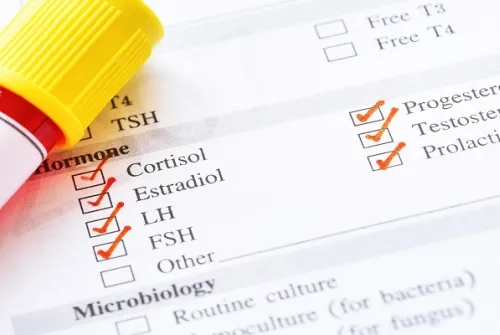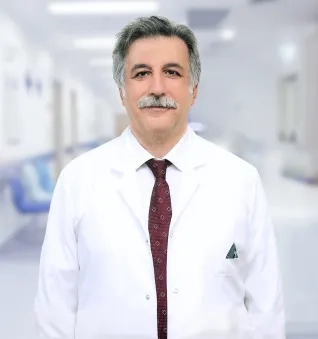Alo Yeditepe
Alo Yeditepe
Did You Know That Our Bodies are Managed by Hormones?
Yeditepe University Hospitals Endocrinology and Metabolic Diseases Specialists emphasize that the proper functioning of all organs and systems in our body depends on the proper functioning of the endocrine system, that is, hormones, and that the scientist of endocrinology plays an important role in the treatment of many diseases. “Endocrinology is a very open department to development. With the discovery of new hormones every year, new methods and drugs are being developed to treat existing diseases.”
Yeditepe University Hospital Endocrinology and Metabolic Diseases Specialists also remarked that the endocrine system, that is, hormones, governs all systems and organs in our body, that a malfunction or disorder that may occur anywhere in our body is closely related to our hormones and that hormonal tests should be performed in the diagnosis of the disease.
Which Organ Secretes Hormones?
Our expert says that hormones are substances produced by certain organs, released into the blood and act on another tissue, and that there are many organs in the human body that secrete hormones, and he lists them as follows:
“The pituitary gland is the control center of other organs that secrete hormones. The thyroid gland is our endocrine organs that control our metabolism, the parathyroid glands control our calcium balance, and the pancreatic gland controls our sugar balance. In addition, the adrenal glands that control the body's water, cortisone balance and where some sex hormones are secreted, and finally the reproductive organs, including the testicles in men and the ovaries in women, are our other hormone secreted organs.”
Hormones Should Be Considered When Diagnosing Diseases
Because there are so many endocrine organs in our body, our expert emphasizes that hormones control every point of our body. Our endocrine system is the control center of our body. The proper functioning of all organs and systems depends on the proper functioning of hormones. The disease that occurs in an organ directly or indirectly affects the endocrine system. Likewise, a disease in the endocrine system can affect all organs. Therefore, in the diagnosis of every disease, "Is there a problem with hormones?" approach must be embarked on and the patient should undergo the necessary screening.”
Over or Under Secretion of Hormones Affects Organs
Our expert gives the following examples of the disorders that may be caused by the secretion of hormones. For example, a disorder in the thyroid glands affects the whole body. If this hormone is secreted more than it manages the metabolism, that is, the working tempo of the organs, it causes the organs to overwork and fatigue. This tires the heart, affects muscle tissue as it will increase muscle contractions; causes tremors. Affects nerve tissue; leads to complaints such as insomnia and irritability. Affects bowel movements, causes frequent going to the toilet. It causes thinning of the skin and hair loss. Excessive secretion of parathyroid hormone causes bone loss and kidney stone formation. Likewise, excessive secretion of some hormones secreted from the adrenal glands leads to high blood pressure.
In summary, too much or too little secretion of a hormone can affect different organs in different parts of our body. Complaints cover the entire body.”
It is One of the Causes of Menstrual Irregularity
Underlining that menstrual irregularity, which is frequently seen in women, is a good example in this sense, our expert states that people with menstrual irregularity mostly consult an obstetrician, but it is very rare that this disorder has a gynecological cause, and he continues as follows: "The underlying cause of menstrual irregularity is probably a hormonal disorder. This does not necessarily have to be a disorder of a hormone secreted from the ovaries. There may also be a problem with the adrenal glands or pituitary glands. Therefore, three different organs may need to be scanned in a single complaint. In this case, the hormone system should be examined first, if there is no problem, a gynecological reason should be suspected. Otherwise, the patient will lose time.”
Our expert says that the endocrine system has started to be understood more and more in recent years, and since hormones and organs affect each other, hormones are directly or indirectly effective in many diseases. Emphasizing the importance of the endocrine system in the treatment of diseases, our expert: '' Endocrinology is a very open department to development. With the discovery of new hormones every year, new methods and drugs are being developed to treat existing diseases.”
This content was prepared by Yeditepe University Hospitals Medical Editorial Board.
”
See Also
- How to Prevent Type 2 Diabetes?
- What Are Weight Loss Injections? How Are They Used?
- What is Hypoglycemia?
- What is Obesity? Obesity Symptoms, Diagnosis and Treatment
- Misconceptions About Hypertension
- What is Hypertension?
- Chronic Pelvic Pain
- What is Polycystic Ovary Syndrome/PCOS?
- The Hidden Problem Seen in One out of Every 10 Women: HIRSUTISM
- Persistent Headache May Be a Sign of Tumor
- The Purpose of Pituitary Diseases is to Avoid Waste of Time with the Right Treatment
- Pelvic Floor Muscles Should Be Addressed with a Multidisciplinary Approach
- Protect Children From Sports That Will Knock Their Head
- Taking a Leave Is as Useful as Quitting Smoking
- Polycystic Ovary Syndrome Can Occur If the Bacteria in the Gut Are Not Functioning Well
- Doctor Support for the Ban on Heading by Children
- Does an Egg Raise Cholesterol?
- Head Trauma Can Cause Permanent Damage
- What is Acromegaly Disease?
- Diabetes Mellitus and its Treatment
- Treatment of Pituitary Adenomas
- Surgical Treatment of Pituitary Diseases
- Pituitary Clinic | FAQs
- What are Pituitary Diseases?
- What is the Pituitary Gland, What are its Functions?
- What is Hirsutism?
- Hirsutism Clinic / FAQs
- Treatment Success in Brain Tumors Also Depends on the Family
Alo Yeditepe






